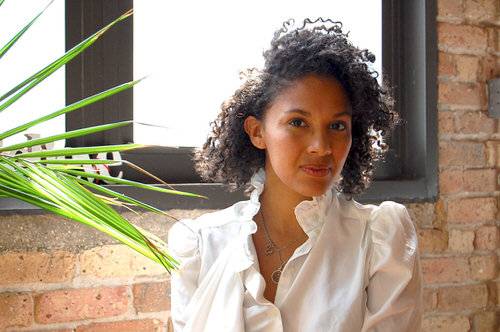
About a year ago, Rachel Brooks was poised to bring her startup to the next level.
Her company, Citizen Made, which makes tools to help companies sell custom products, won a L’Oréal Women in Digital grant, giving it the funding it needed to open a new office in New York City. Money wasn’t an obstacle for the Chicago-based founder, but as a black woman in technology, networking in a new city might be.
“We have to acknowledge it’s very difficult to enter this industry as somebody who identifies as an other,” said Brooks. “Tech isn’t something you were born into, and so you confront a lot of things other people don’t have to deal with.”
Fortunately, it was around the same time that Brooks connected with Kathryn Finney of Digital Undivided, a community outreach program with the mission of getting black women started in tech. Finney connected Brooks with dozens of big players in New York City tech circles and crafted introductions for her.
“Because of those introductions and [Digital Undivided] generally sponsoring me, I was pushed into a space where people would listen to me and people would care. It allowed me to start jumping into the deep end in New York very, very quickly,” said Brooks.
Invisible Barriers
In a perfect world, Brooks’ startup would be defined by its merit, not the demographic background of its founder.
But in reality, Brooks is an anomaly. According to the latest data collected by the National Center for Women in Technology, only 25 percent of U.S. technology jobs were held by women in 2009. And only three percent of technology jobs were held by African American women.
The fact that Citizen Made has earned funding is also rare: in 2010, just one percent of venture-funded startups were founded by black people.
How do those numbers get changed? According to Finney, black women need to be given the same resources and networks their white male counterparts enjoy. Digital Undivided does this by offering workshops and resources in cities with predominantly black populations: Philadelphia, DC, Atlanta, Chicago, Houston, Detroit, Oakland and the Harlem neighborhood of New York City.
Digital Undivided stays profitable by charging for these workshops, because Finney has found that money isn’t the problem for participants. It’s a lack of opportunities.
This is an especially personal issue for Finney, whose father was able to transition his career from blue-collar mover to software engineer thanks to a data-entry class that IBM brought to inner-city Milwaukee.
“It was really about someone coming into the ‘hood and giving them an opportunity, giving them the spark of tech,” she said.
And then there’s what Finney calls “Tech’s advertising problem.”
“If you’re a young black woman living in Harlem and you look at the campaigns that have been done around tech and all you see are 25-year-old white guys, how would you feel?” she asks. “It’s being almost told you can’t be involved.”
In order to change the face of tech, Finney is fond of saying, you “ literally need to change the face of tech.”
“A really important part of what we do is just showing up and saying, ‘Look, hey, I’m in tech and I look like you and I’m from where you’re from. You can do this.”
“The World’s Most Diverse Tech Conference”
The most visible part of Digital Undivided’s work is the Focus100 conference, which takes place this Friday, Oct. 4. Finney estimates that 80 percent of the group’s speakers are either women, minorities or both. Some major names in tech will be speaking, including Adria Richards and Anil Dash. For the conference’s second year, sponsors include Andreessen Horowitz, Google and American Express.
But some of the most inspirational guests are the female founders Finney has worked with herself, who run companies like organic food data service Mercaris, student tool Grade Check and the aforementioned Citizen Made.
Focus100 gets its name from Finney’s goal to propel 100 new female founders in the tech industry by 2015. So far, 20 of the companies she’s worked with have reached that goal. In other words, 20 tech startups that may have never existed if it weren’t for Digital Undivided’s network and resources.
Brooks is listed among the speakers, ready to talk about her company, now thriving in its new office and edging toward profitability.
“What Kathryn is bringing to the table is a community atmosphere for people who usually don’t quite fit the mold,” said Brooks. “It really does foster you into a community that otherwise doesn’t look like you.”
Photo courtesy of Rachel Brooks.

















